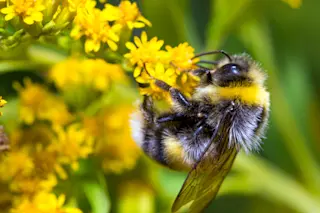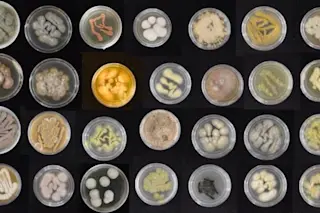(Credit: Sergey Lavrentev/Shutterstock) Once bees get a taste of pesticides, it seems they can't help coming back for more. For years, common agricultural pesticides, like neonicotinoids, have been shown to have detrimental effects on bee colonies. Though the results aren't always consistent, the bulk of evidence shows that pesticides are bad for bees. Exposed bees can have difficulty reproducing, die younger and aren't as attentive to their nests when the chemicals show up in their food sources. One major criticism of studies looking at bees and pesticides, though, has been that they don't accurately mimic real-world conditions. Previous studies have begun to chip away at that argument, and another, published Tuesday in The Proceedings of the Royal Society B, reveals an even more worrying effect of neonicotinoids. Not only can they harm bees, the insects seem to be learning to prefer food laced with the pesticides. Some kinds of neonicotinoids ...
Bees Get Buzzed on Pesticides, Keep Coming Back for More
Discover the neonicotinoids harmful effects on bees and how they might prefer pesticide-laced foods, risking bee populations.
More on Discover
Stay Curious
SubscribeTo The Magazine
Save up to 40% off the cover price when you subscribe to Discover magazine.
Subscribe













